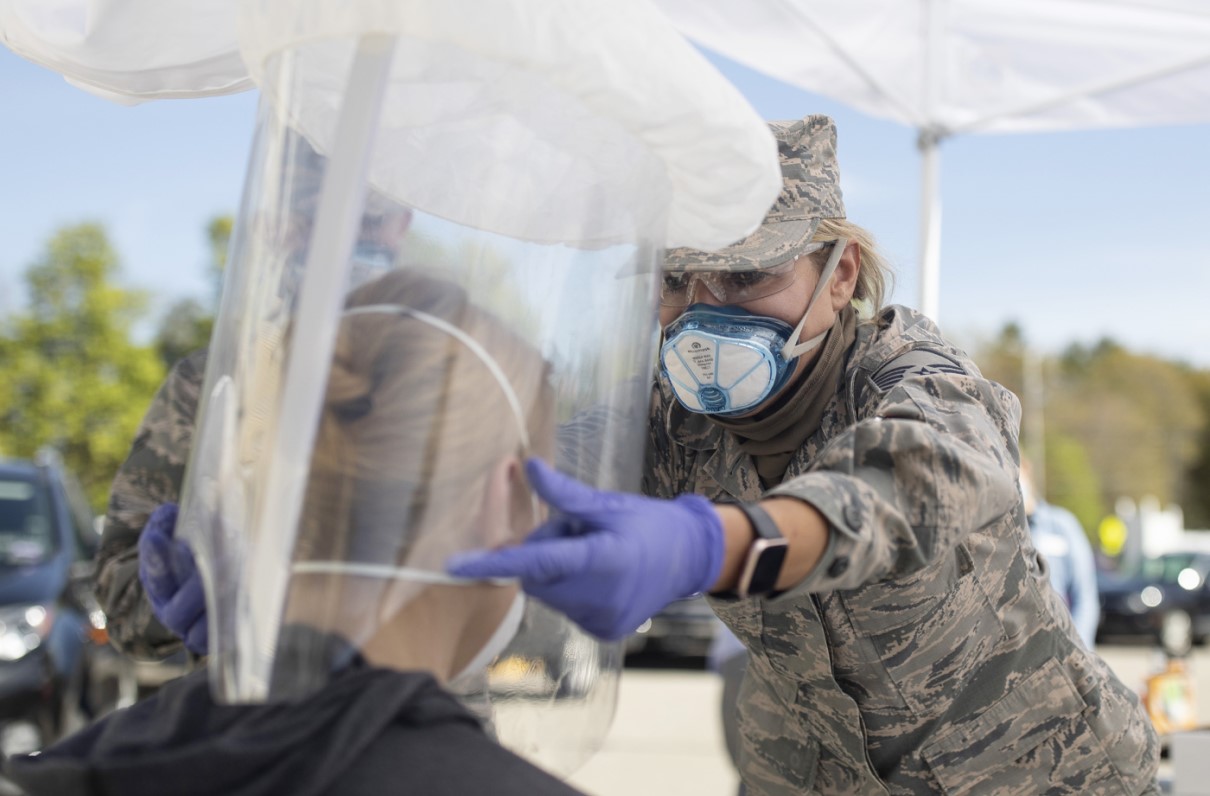(UPDATE: This article was revised May 28 to include President Trump’s decision to extend Title 32 orders through mid-August.)
There are 53,000 members of the reserve component on the front line of the COVID-19 fight. These servicemembers are filling essential roles for the states like supporting testing, assisting at long-term care facilities, and distributing food.
In addition to battling the virus, until today, many of these servicemembers were uncertain as to whether they would receive federal credit for their service.
MOAA joined with the Reserve Organization of America (ROA) to call on President Donald Trump to stop the curtailment of orders a day short – a move that would allow for more federal benefits. These benefits are essential to recruiting and retaining an all-volunteer force of individuals willing to respond to national disasters like a pandemic.
On May 28, President Trump responded to the MOAA and ROA letter concerning members of the National Guard. In a tweet, the President announced, “The men and women of the National Guard have been doing a great job fighting the CoronaVirus. This week, I will extend their Title 32 orders through mid-August, so they can continue to help States succeed in their response and recovery efforts.”
[READ THE MOAA/ROA LETTER HERE]
When activated, many states placed troops on state active duty orders, allowing states to quickly call up support. However, as the situation unfolded and the extent of the pandemic became apparent, it was clear these troops were supporting a national crisis, which was not reflected by their orders.
MOAA worked with The Military Coalition — a group of military and veteran organizations representing more than 5.5 million combined members — to advocate for moving members of the National Guard to Title 32 orders so they could receive federal benefits like TRICARE, medical treatment facility access, education benefits, and death gratuity. Our calls were heard, and the vast majority of the Guard was placed on those orders.
Prior to the President’s decision, the federal government was going to stand down the reserve component after 89 days on orders. This is one day short of earning Post-9/11 GI Bill credit and the ability to collect retirement pay early proportionate to periods of activation at 90 or more days.
[LATEST NEWS AND GUIDANCE: MOAA.org/Coronavirus]
“The mission is not done yet,” National Guard Chief Gen. Joseph Lengyel, USAF, said. “The one thing we know for sure is that this mission is going to continue beyond the 24th of June.” The President’s extension of the National Guard reflects an understanding of their vital role in the COVID-19 response and the value they provide in helping the nation recover.
The question remains as to whether the 7,500 reservists will also be extended to mid-August. Many of these reservists were initially activated on individual training or annual training orders.
The President’s response to the MOAA and ROAA letter is good news for the reserve component and show his concern for taking care of the troops in these difficult times.
If you’re a member of the Guard or Reserve responding to the pandemic, use our COVID-19 reporting tool to share how you’ve helped the national and which orders you’re on.
Support The MOAA Foundation
Donate to help address emerging needs among currently serving and former uniformed servicemembers, retirees, and their families.

